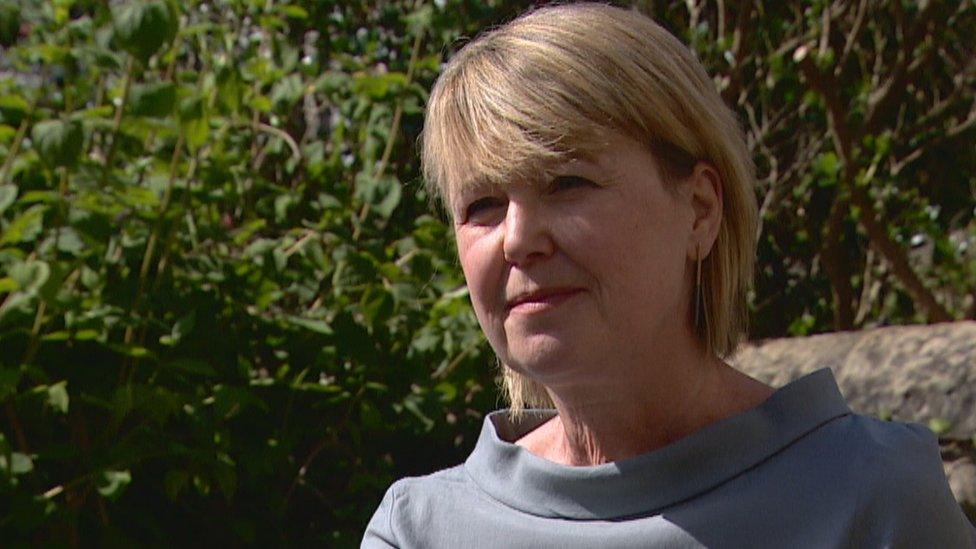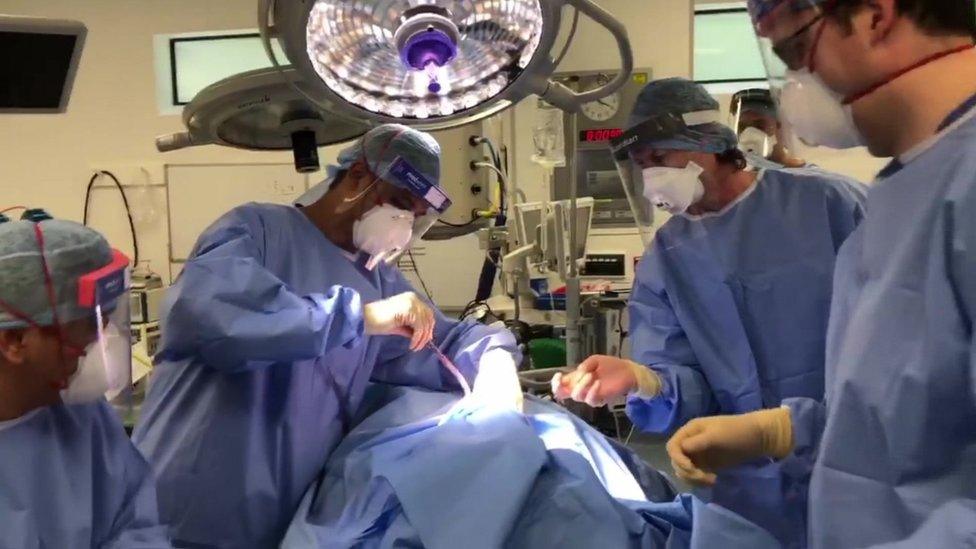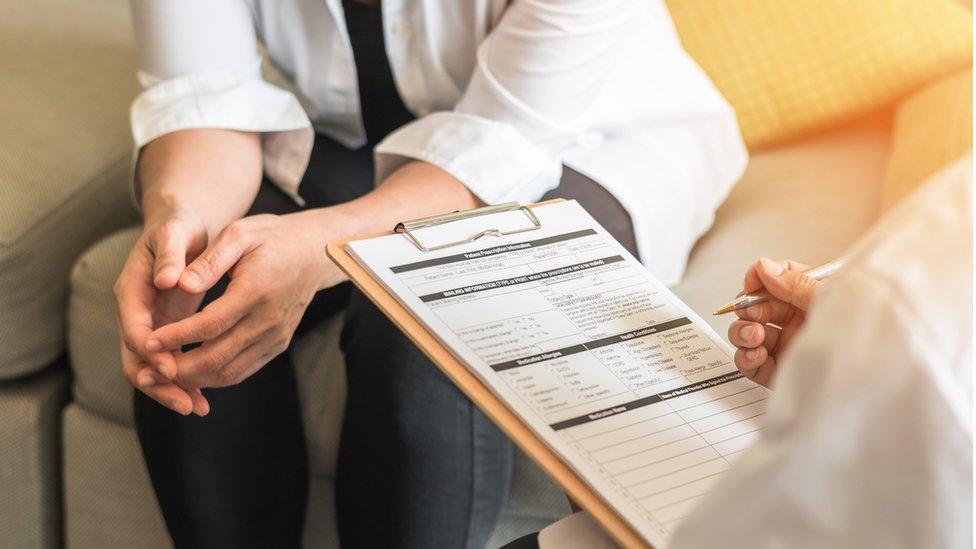Coronavirus: 'I can't get lifeline cancer trial in lockdown'
- Published

Lesley Stephen was given more years with her family due to a cancer drug trial
For years, Lesley Stephen has lived her life in three month chunks - roughly the time that passes between cancer scans.
The 54-year-old from Edinburgh has made no long-term plans in case her illness worsens.
Booking holidays is tricky but otherwise, Lesley says she enjoys a good quality of life with her family - a life she never thought she would see - due to treatment she receives through a clinical trial.
But because of lockdown, most trials have stopped taking on new patients or have halted completely.
"If you've got advanced cancer it's often a lifeline for you," said Lesley. "You're basically taking away a life or death option."
What began as a persistent cough for Lesley was eventually diagnosed as metastatic breast cancer.
Scans showed the disease had spread to her lungs, liver and bones, and later to her brain.
By October 2015, she was told to put her affairs in order as she had exhausted most forms of NHS treatment.
However after being accepted for the last place on a drugs trial, Lesley said she felt a difference almost immediately.
She said: "It was unbelievable, previously I'd had so much cancer in my lungs I couldn't walk up the stairs and within five days I could tell the breathing was getting better.
"I'm still on that trial four and a half years on and it's given me a pretty normal life with the family."
'Safe zones'
Cancer charities now fear lives could be lost because of the dip in trials.
The Scottish government says it is looking at ways of restoring research as virus figures drop.
Cancer Research UK - which funds around 50% of research in the UK - says it could be up to a year before they are back up to speed.
Guidance has been issued to encourage sites to think about how to safely restart trials, which are often life-saving.
Dr Ian Walker from the charity says they need to find ways of restarting safely.
He told BBC Scotland: "We've been pushing for the creation of safe zones or cold zones where we can try and encourage or work in different ways to provide Covid-free environments for cancer patients.
"It's not easy. It requires that hospitals do more testing, and the testing has to be for cancer patients and staff.
"And not just symptomatic people but asymptomatic people as well to really try to provide as much reassurance that we've not got Covid in those environments with cancer patients as best we can."
Future uncertain
Now an advocate for the charity Makes 2nds Count, external, Lesley explains that the trial drug she is taking has become less effective.
She says she needs to be placed on a new trial, but fears for what this pause on research will mean for her.
She said: "I need another clinical trial, and clinical trials have stopped recruiting for the foreseeable future.
"I believe there are a few hoping to open up, but they aren't necessarily the ones that I'll need.
"So it's quite an anxious time, and I really don't know what the next six months will look like for me. "
A Scottish government spokesperson said research, development and innovation were an integral and vital part of the NHS.
"We are entering a new phase of the current pandemic, where the number of new cases of Covid-19 is declining and the time is right to work towards the restoration of a diverse portfolio of Health and Social Care Research here in Scotland," they said.
"The Scottish government chief scientist office has established a Covid-19 restart operational group to share best practice and support development of operational processes and guidance to support the resumption of non-Covid research activity across NHS Research Scotland."
- Published20 May 2020

- Published1 June 2020
